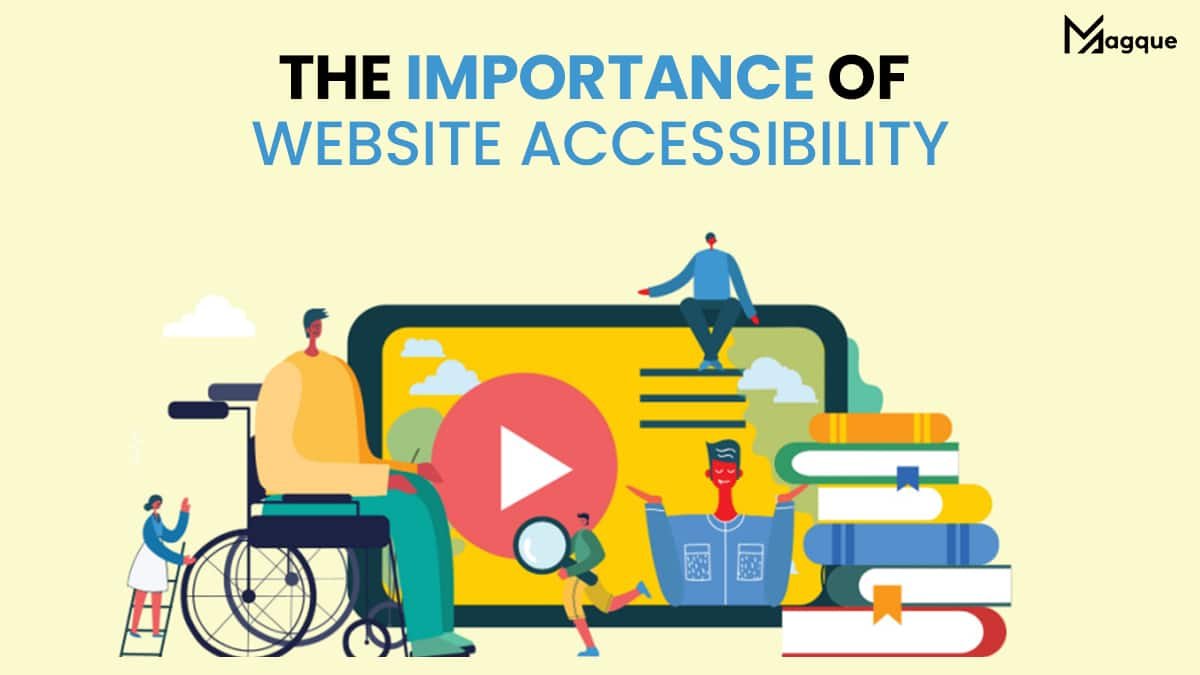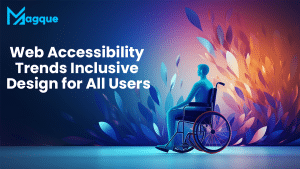Have you ever visited a website only to find it impossible to navigate or, worse, inaccessible altogether? Imagine being in a crowded room where everyone is engaged in lively conversation. Still, you’re unable to participate because the door is locked. That’s how millions of people feel every day when they encounter websites that are inaccessible to them.
The Impact of Accessibility
Website accessibility is not just a matter of convenience; it’s a matter of inclusivity and equality. When a website is accessible, people with disabilities, such as visual impairments, hearing impairments, or mobility limitations, can navigate and interact with it just like anyone else. It’s about providing equal access to information and services for all individuals, regardless of their abilities.
Imagine trying to read a webpage without being able to adjust the font size or contrast or navigating a site using only a keyboard because a mouse is not an option. These are daily challenges for many people with disabilities, and inaccessible websites only serve to isolate them from the digital world further.
The Importance of User Experience
Website accessibility goes hand in hand with user experience (UX). An accessible website is also likely to be more user-friendly for everyone. Think about it: straightforward navigation, descriptive alt text for images, and captions for videos not only benefit users with disabilities but also enhance the experience for all visitors.
When users can easily find what they’re looking for and interact with your site without barriers, they’re more likely to stay longer, engage with your content, and ultimately convert. Plus, search engines like Google value user-friendly websites, so accessibility can also positively impact your SEO efforts.
SEO Benefits of Accessibility
Speaking of SEO, did you know that website accessibility can boost your search engine rankings? Search engines like Google prioritize user-friendly websites that provide a positive experience for all users. By making your website accessible, you’re reaching a wider audience and improving your chances of ranking higher in search results.
When you optimize your website for accessibility, you also optimize it for SEO. This means using descriptive headings and alt text, ensuring fast load times, and creating mobile-friendly designs. Search engines consider these factors when determining the relevance and quality of your website.
Conclusion: Embracing Accessibility for All
In a digital age where information is at our fingertips, it’s essential to ensure that everyone has equal access to it. Website accessibility is not just a legal or moral obligation; it’s a fundamental aspect of digital inclusion and equality. By prioritizing accessibility in your web design efforts, you’re not only empowering individuals with disabilities but also enhancing the user experience for all visitors.
So, let’s unlock access together and make the web a more inclusive and accessible place for everyone.
At Magque, we believe in the power of accessibility to create a more inclusive digital world. Contact us today to learn how we can help you optimize your website for accessibility and improve your online presence. Let’s make the web a more welcoming place for all.
FAQs
1. Why is website accessibility important?
Website accessibility is crucial because it ensures that individuals with disabilities can access and interact with online content. By making websites accessible, we promote inclusivity and equal access to information and services for all users.
2. How does website accessibility benefit users without disabilities?
While website accessibility primarily benefits users with disabilities, it also enhances the experience for everyone. Straightforward navigation, descriptive alt text for images, and video captions improve usability for all visitors, leading to better engagement and satisfaction.
3. Are there legal requirements for website accessibility?
Many countries have laws and regulations mandating website accessibility, such as the Americans with Disabilities Act (ADA) in the United States and the Web Content Accessibility Guidelines (WCAG) globally. Ensuring your website complies with these standards is ethical and legally necessary.
4. Can website accessibility improve search engine optimization (SEO)?
Absolutely! Search engines like Google prioritize user-friendly websites, and accessibility is critical to providing a positive user experience. By optimizing your website for accessibility, you can also improve your SEO efforts and potentially boost your search engine rankings.
5. How can I make my website more accessible?
You can take various steps to improve the accessibility of your website, such as using descriptive headings, providing alt text for images, ensuring keyboard navigation, and testing your site with accessibility tools. Consulting accessibility guidelines like WCAG can also help you identify and address accessibility issues effectively.
Read Also This:- Website Accessibility Improvements













